The Breach
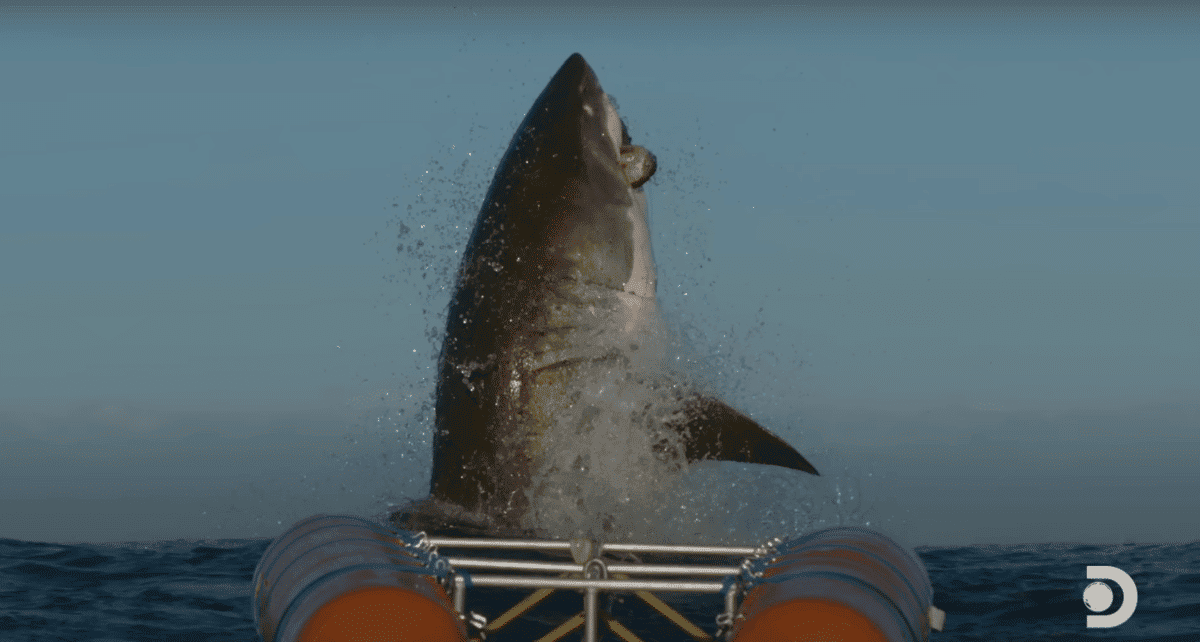
The largest breach of a great white shark ever recorded was in South Africa. Great white sharks in this region are renowned for their breaching behavior, a hunting technique where they propel themselves out of the water to catch their prey, often seals.
The location of the largest recorded breach was likely around Seal Island in False Bay or the waters off Gansbaai, both well-known spots for observing great white shark behavior. These areas are globally recognized for their large population of great white sharks and their spectacular breaching activity.
Air Jaws: Top Guns
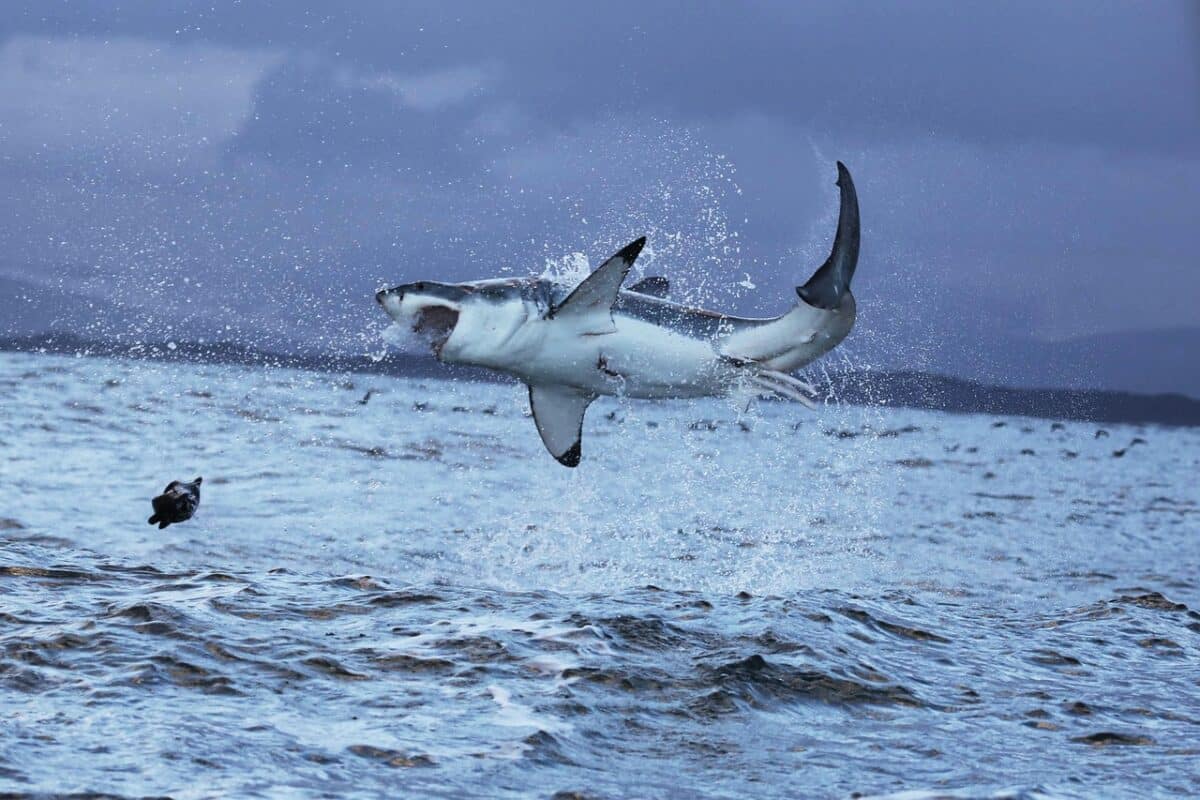
“Air Jaws: Top Guns” is a part of the “Air Jaws” series, featured on the Discovery Channel’s Shark Week. This series focuses on the spectacular breaching behavior of great white sharks. These documentaries capture the dramatic moments when these sharks leap out of the water, a behavior especially prevalent in South Africa’s waters, as they hunt for seals.
Great White Shark Encounters in 2023
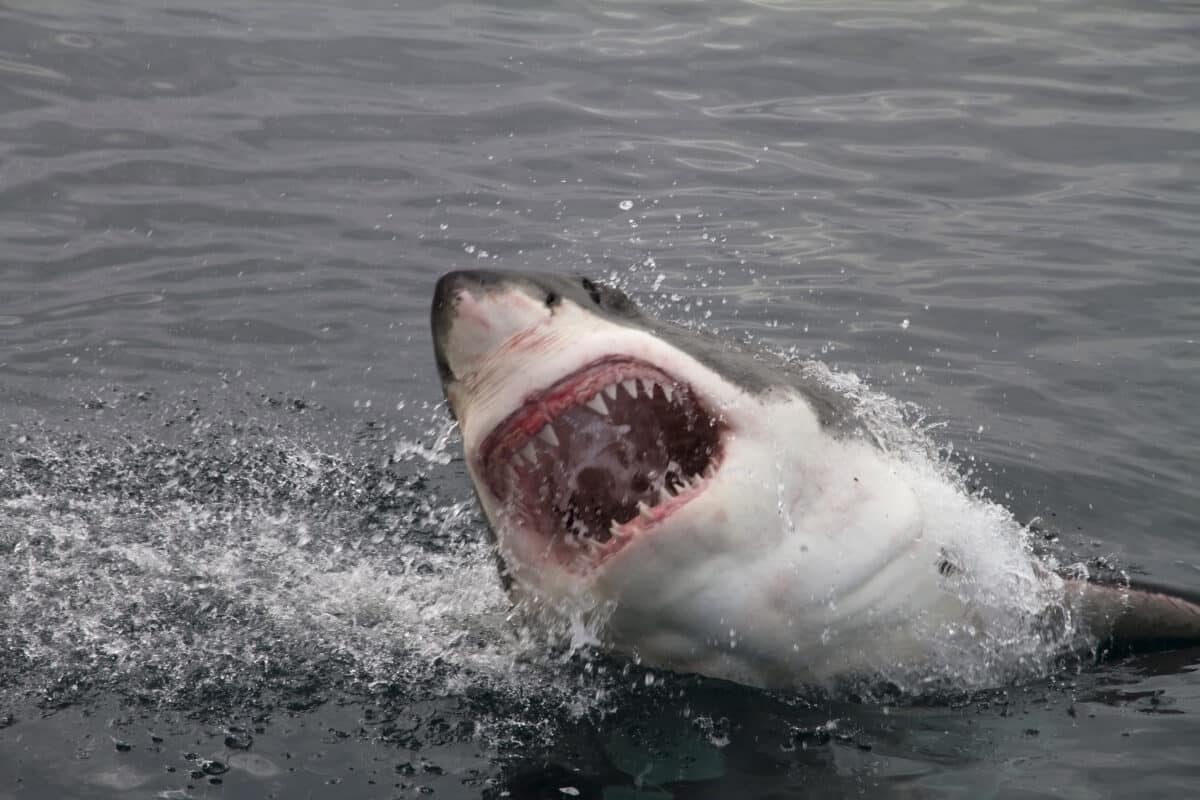
In 2023, there have been several notable encounters with great white sharks across various locations. Globally, there are approximately 100 shark attack bites reported each year, but most of these are minor. In Australia alone, there have been 11 shark attack bites, with three resulting in fatalities. The attacks were spread across various regions, including Western Australia, Northern Territory, New South Wales, and South Australia.
Shark Attack in South Africa
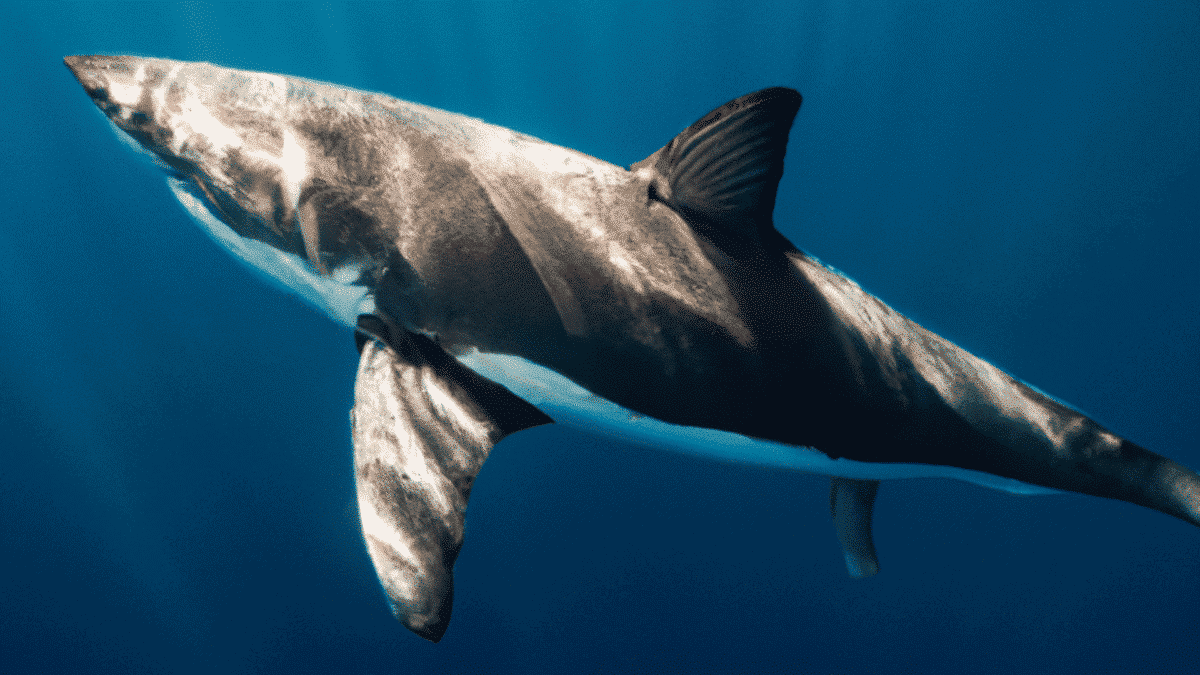
In South Africa, there’s been a noticeable shift in the locations where great white sharks are encountered, particularly following two fatal shark incidents in 2022. This has led to enhanced monitoring and efforts by shark spotters in areas like Cape Town and Plettenberg Bay. Researchers focus on understanding the factors behind sharks’ movements and their impact on distribution over time and space. This is crucial for both beach safety and conservation efforts.
These encounters highlight the importance of ongoing research and public education about shark behavior and the need for effective safety measures in areas known for shark activity. While shark attacks are relatively rare compared to the number of people going into the water, they can have severe consequences, underscoring the need for vigilance and respect for marine wildlife.
Why are Great White Sharks Breaching?
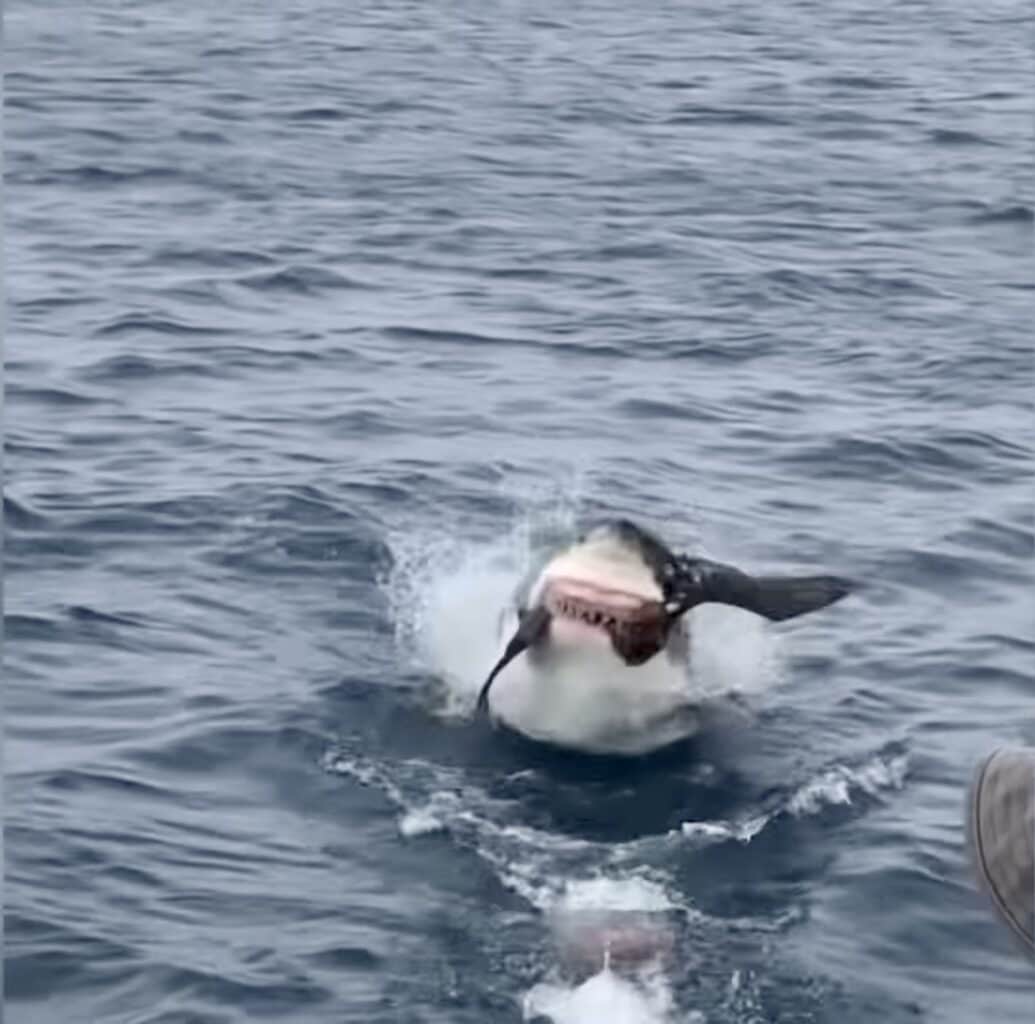
Sharks, particularly great white sharks, breach as a hunting technique. This spectacular behavior involves the shark propelling itself out of the water, often to catch its prey unawares. The reasons for this behavior include:
- Surprise Attack: By breaching, sharks can surprise their prey, typical seals, which may not detect the predator coming from below at high speed. This element of surprise is crucial for the shark to catch agile and swift-moving prey.
- Speed and Impact: The speed and force generated during the breach can stun or kill the prey upon impact, making it easier for the shark to catch it. Great whites are known to reach speeds of up to 35 mph (56 km/h) in these attacks, which gives them enough momentum to break the surface and leap into the air.
- Efficiency: Breaching can be a more efficient way to catch prey than chasing it in the water. By attacking from below with such force, sharks can catch their prey more quickly and with less energy expenditure than if they pursued it in a prolonged chase.
- Depth Perception: Attacking from below gives the shark a better view and depth perception of its target against the light of the surface.
- Environmental Factors: In some regions, like South Africa’s coast, the geography and water conditions might make breaching a more advantageous hunting strategy.
The Bottom-line
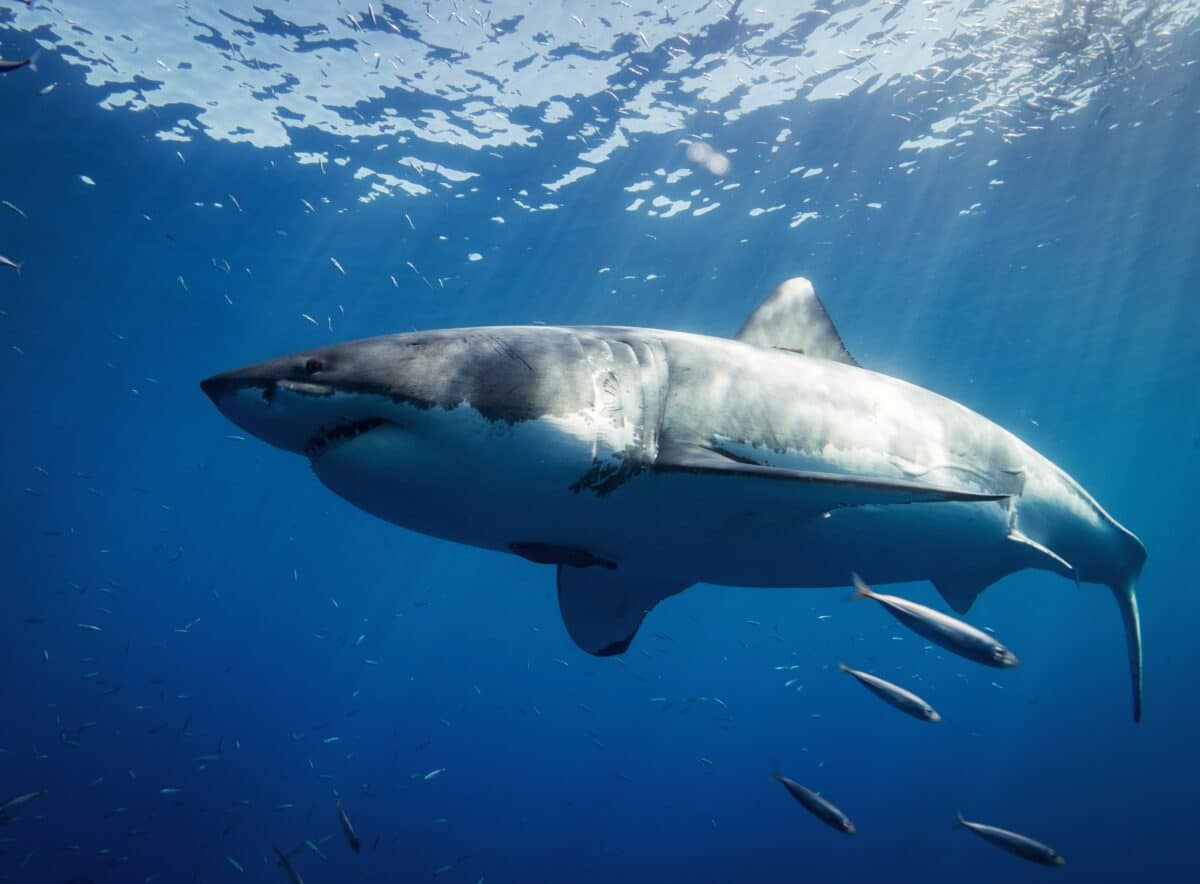
Sharks, in general, are not inherently dangerous to humans. The perception that sharks are highly dangerous and aggressive towards humans is largely a misconception, often fueled by sensationalized media and entertainment.
If you like to read about sharks, have a look at the following articles and thanks for reading!
- Watch a Man Pet a Great White Shark from His Boat
- When a Seabird’s Playful Antics Meet a Great White Shark’s Appetite
- Animals and Wildlife in Colorado - April 24, 2024
- Best Places to see Sloths - April 24, 2024
- Where to See Alligators in the Wild - April 24, 2024

